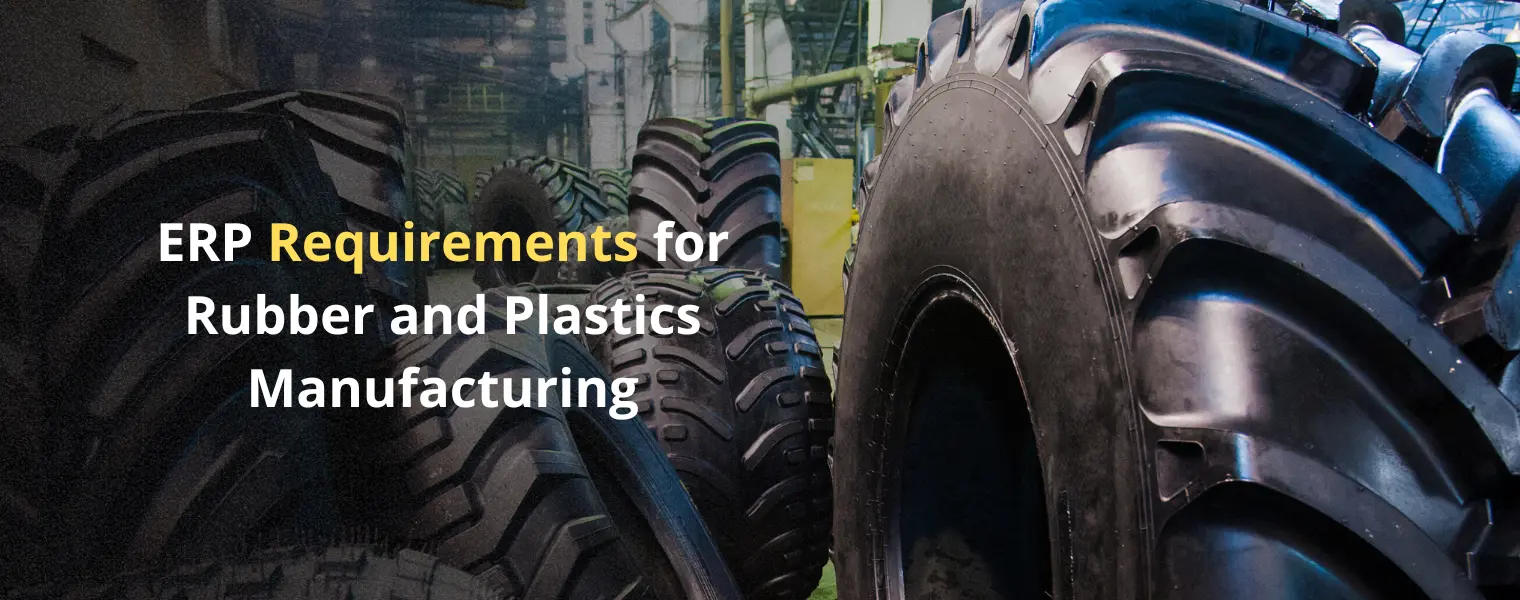
Rubber and plastics manufacturing is a complex and highly competitive industry that requires efficient management of resources, materials, production, and quality control. An Enterprise Resource Planning (ERP) system can help businesses in this industry manage their operations more effectively. In this blog post, we will explore some of the key ERP requirements for rubber and plastics manufacturing.
An ERP system for rubber and plastics manufacturing should integrate all business functions, including production, inventory, quality control, supply chain management, cost control, compliance, and reporting. By integrating these functions into a single system, businesses can streamline their operations and improve efficiency.
An ERP system for rubber and plastics manufacturing should have robust production planning and scheduling features. The system should be able to create production plans, schedule jobs, and allocate resources, including machines, personnel, and materials. Real-time tracking of production progress can help businesses identify bottlenecks and optimize production processes.
An ERP system for rubber and plastics manufacturing should have powerful inventory management features. The system should provide real-time tracking of inventory levels, including raw materials, work-in-progress, and finished goods. The system should also help businesses manage inventory locations, lot tracking, and expiration dates.
Quality control is critical in the rubber and plastics manufacturing industry. An ERP system should provide tools for inspection, testing, and reporting. The system should help businesses set up quality control parameters for each product and track the quality history of each product.
An ERP system for rubber and plastics manufacturing should provide tools for tracking and analyzing costs associated with raw materials, production, labor, and overhead. The system should help businesses set up cost standards for each product and compare actual costs to standard costs.
An ERP system for rubber and plastics manufacturing should provide efficient supply chain management features. The system should help businesses manage suppliers, including tracking orders, managing supplier performance, and monitoring supplier quality. The system should also help businesses manage procurement processes, including purchase orders and invoices.
Compliance management is vital in the rubber and plastics manufacturing industry, where businesses must comply with regulations and reporting requirements. An ERP system should help businesses manage compliance, including tracking and reporting on regulatory requirements, managing quality control processes, and maintaining certifications.
An ERP system for rubber and plastics manufacturing should provide businesses with robust analytics and reporting features. The system should help businesses analyze production data, inventory data, and quality data to identify trends and opportunities for improvement. The system should also provide reporting tools for compliance, cost control, and supply chain management.
An ERP system can provide numerous benefits for businesses in the rubber and plastics manufacturing industry. The system should integrate all business functions, provide robust production planning and scheduling, efficient inventory management, and powerful quality control, cost control, supply chain management, compliance management, and analytics and reporting features. By implementing an ERP system, rubber and plastics manufacturing businesses can improve their efficiency and productivity, reduce costs, and stay ahead of the competition. DoFort provides the ERP software for Rubber and Plastic manufacturing industry. For more info contact us at info@doforttech.com
Welcome to DoFort !